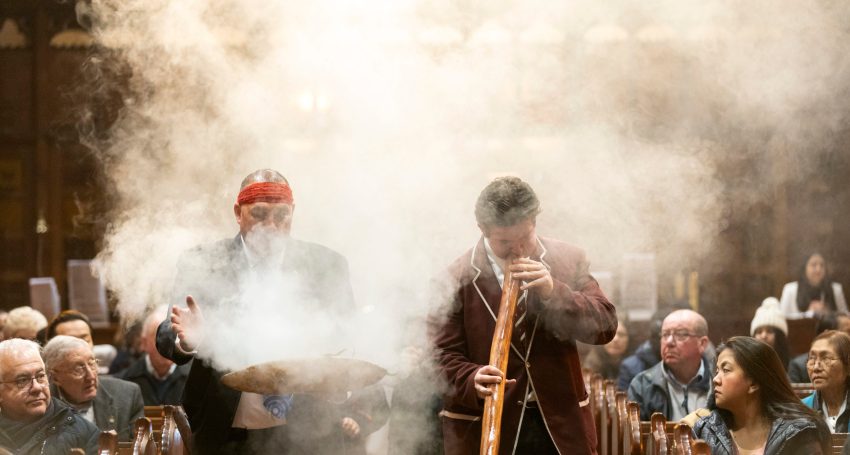Indigenous concerns over assisted suicide
Local
Aboriginal leaders have warned that the Voluntary Assisted Dying (VAD) Bill before State Parliament is a threat to First Nations people around Australia.

In a strongly worded letter to MPs, Anangu Pitjantjatjarra woman Melissa Thompson said she was deeply concerned that politicians were trying to rush this “dangerous legislation” through Parliament.
Her sentiments were echoed by Aboriginal Catholic Ministry manager John Lochowiak, who told The Southern Cross euthanasia was at odds with Aboriginal culture.
Ms Thompson said in her letter that there had been no dialogue with Indigenous communities.
“This is unacceptable,” she wrote. “People in the Aboriginal community can be uneasy and afraid towards Western medicine.”
Advertisement
She referred to Senator Pat Dodson’s claim that the mere presence of this legislation may be a barrier to First Nations people receiving healthcare and that fears and suspicions of ‘white-fella’ medicine would only increase, and the capacity to ascertain informed consent would be difficult.
“As a young leader of my tribe and Anangu person and as a Law and Cultural Woman, I stand for all Aboriginals in Australia. I don’t want unknown law coming in to my country. The land and the people here in this country is to live on, not destroy it,” she wrote.
“As a generational leader of APY Lands, I say this to all, it should not happen in this country or to my people.
“The last thing we all, Aboriginal people, need is another avenue to death. I don’t want another death sentence for all my people and all of Australia.
“This land is a freedom country, a Land of the Holy Spirit. We should not be taking the life of God’s people, my people.
“This legislation will take our culture and is against everything we stand for and believe in. The government will be held responsible for our people’s lives. We are Australia’s native people and we should be protected. I urge you to take heed of my words and my people’s words and not push this terrible legislation through Parliament.”
Ms Thompson said politicians had a duty of care to prolong life and to focus on improving healthcare for all, especially Torres Strait Islanders and Indigenous Australians.
Mr Lochowiak, who is chair of the National Aboriginal and Torres Strait Islanders Catholic Council, said the VAD Bill before Parliament was at odds with the culture and spirituality of Indigenous peoples.
He said that “culturally, euthanasia is not acceptable”.
“We’ve got a number of ceremonies around death and there is a seasonality to life which Indigenous people accept as part of their tradition,” Mr Lochowiak said.
“Being spiritual people we believe our paths have been paved, whatever happens happens, in line with the spirit of the land. There is a spiritual connection with Mother Earth, with the land and the environment.”
Advertisement
He also said Aboriginal culture was based on an extended family structure that involved caring for one another at all stages of life and death.
“If that sense of accompaniment is now bypassed or delegated to a doctor having euthanasia discussions with a patient, without any reference to the community, then it is going to seriously weaken the connectedness of the community.
“If something goes wrong or someone loses their life, people will look to see if everything was done correctly.
“If there’s an issue there, if they think someone is to blame that’s a really big thing. It can create massive conflict between the extended family. We don’t need that!”
Another concern was lack of communication with English often the second, third or fourth language for Aboriginal elders. This was exacerbated when medical jargon was used.
“Where there are communication issues the easiest word to say is ‘yes’, especially if you’re feeling ill on top of that, it can hinder the decision making process,” Mr Lochowiak said.








Comments
Show comments Hide comments